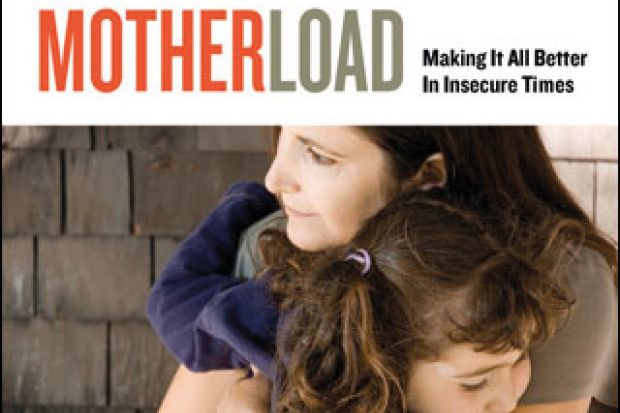Mothers seldom get sympathetic coverage in the social sciences, except as bearers of ideological fantasies about either family perfection or its demise. Owing to a sharpening of victim-blaming individualism, increased financial insecurities and media-fuelled crime, health and abuse scares, the expectations placed on motherhood have become unrealistically high across the social spectrum. Ana Villalobos’ book is a well-researched and carefully argued exception.
Focusing on the high, often commercially induced, notions of “ideal” mothering and their negative impact on real mothers and their efforts to do well by their children, Villalobos asks what the consequences are of this increase in expectations of their capacity to provide security through mothering, or the “motherload”. This is not a book about children, but about mothers and their increasingly anxious relationship to children.
Her evidence is based on a qualitative analysis of 168 lengthy (and some longitudinal) interviews and observations with 51 mothers in various social strata. Although her sample is small and US-based, Villalobos’ general arguments are highly convincing. Her detailed analysis of a few “ideal typical” cases of mothers for whom mothering has become an all-consuming, “intensive” task is framed by the symbolic-interactionist dictum that what individuals interpret as real is real in its consequences. Her findings show that the driving force behind intensive mothering is a search for improved security for both mother and child, and the use of the child as the source of that security.
Although sources of this drive for security differ, they ultimately stem from perceived external threats. Some are real, such as financial insecurity, risks of home loss, divorce and social isolation; others are less so. Kidnapping may be less of a risk to a child than traffic accidents, yet travelling everywhere by car makes a mother feel safer. Even if finances are secure, the risk of status loss feels real. Strategies to protect against such insecurities differ. A mother might permanently “attachment connect” with her child to create an emotional haven in a harsh world, or permanently “disconnect” and subject the child to real risks to “toughen it up”. In both instances her strategy paradoxically comes close to undermining her own security by preventing her from engaging with the outside world in adult relationships and income generation. It also inevitably prevents her from collective engagement that might lighten her load. There are many different kinds of strategies in between, all illuminatingly drawn and discussed here.
Most of the mothers interviewed, however, did not adhere to a rigid model of “correct” mothering with its notion of babies as brittle and one-false-move-and-you-have-scarred-them-for-life creatures. Although the mothers frequently refer to doing things “instinctively”, a sense of maternal competency is not naturally given, but arises out of the social context of ample and willing help and support from relatives, friends and partners and via other dimensions of social security, such as financially stable child-friendly employment. Half a century ago, Alva Myrdal, the Swedish welfare state reformer, argued that it took a nation to care for mothers and children. More recently, Hillary Clinton reckoned it took a village. Villalobos has convincingly shown us yet again that leaving mothers to do it alone should not be an option in societies that see themselves as civilised.
Motherload: Making It All Better in Insecure Times
By Ana Villalobos
University of California Press, 296pp, £52.00 and £19.95
ISBN 97805208097, 08103 and 0959729 (e-book)
Published 23 September 2014
Register to continue
Why register?
- Registration is free and only takes a moment
- Once registered, you can read 3 articles a month
- Sign up for our newsletter
Subscribe
Or subscribe for unlimited access to:
- Unlimited access to news, views, insights & reviews
- Digital editions
- Digital access to THE’s university and college rankings analysis
Already registered or a current subscriber? Login





